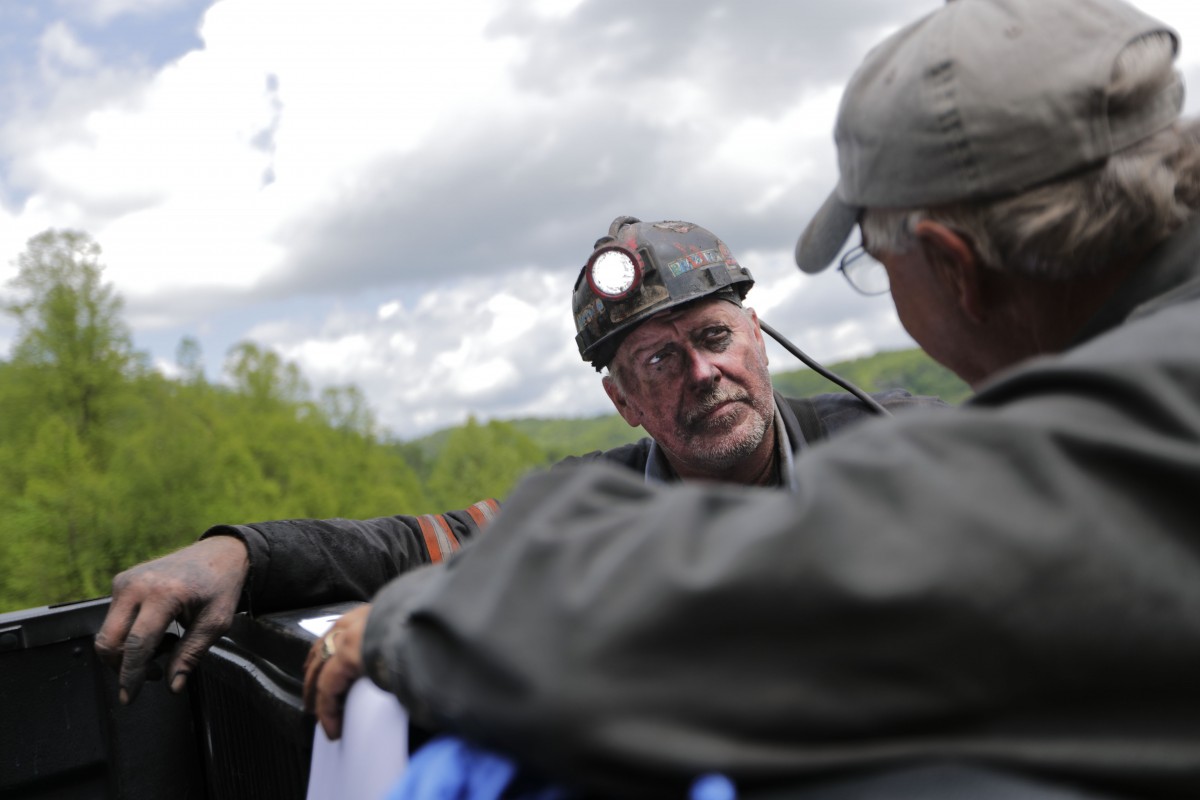West Virginia Gov. Jim Justice isn’t afraid to ask God to guide his state through the novel coronavirus pandemic.
In a proclamation issued this week, Justice said that West Virginia’s “steadfast and abiding belief in God,” led him to declare March 25 a statewide Day of Prayer. But because of restrictions on gathering in large groups, Justice opted to lead that prayer online.At noon on Wednesday, Justice broadcast a live stream of religious leaders from several different faiths, all praying for the health, safety and well-being of West Virginians.
“You know, I am a man of prayer and I am proud of it. The blessings that we have are unlimited and yet we have struggles,” Justice said. “Today we are facing a monumental struggle. I thought about this today and I thought I am nowhere near professional in order to offer a prayer. But I feel like I need to say a prayer for all of us.” Justice said.

During the hour-long broadcast, Justice led a prayer himself, asking for a higher power to hear the voices of millions around the world and intervene.
“I know in my heart that the only way will defeat this terrible disease is through your intervention,” the governor prayed.
In a region where religion is a way of life, especially in times of crisis, social distancing and prohibitions on large groups put in place to combat the spread of the coronavirus pandemic are forcing religious leaders, and religious communities, to reinvent how to worship. While most places of worship have closed their doors, they’re proving that “church” is not limited to a building.
Social Distancing without Spiritual Distancing
Pastor Phillip Sears with the Freedom Center Assembly of God in Piedmont, South Carolina, spent this past Sunday preaching the gospel before rows of parked cars. Instead of meeting in a building, they met in a parking lot. Instead of offering handshakes to fellow members, they waved from rolled down windows. Instead of saying amen, they honked their horns.
Freedom Center has three different campuses across the Upstate of South Carolina and more than 450 members. Already the church has services through Facebook Live sometimes reaching 600 to 700 views; this weekend’s “drive in” church got more than 1,800.
For Sears, it’s all a part of redefining who and what the church is, but in the time of COVID-19, he’s taking it further.
“My wife says it’s time for us to redefine ourselves as the church,” he said. “I’m on the phone talking to people in the congregation each day. I’ve had a cell phone for decades and I’ve never run the battery all the way down. Now, my battery runs out in the middle of the day.”
“We’re texting, emailing, messenger-ing, you name it,” Sears said. “We’re telling them ‘We’re still here for you.’ The church is not a building, it’s a community.”
That shift away from regular services was an easy choice for Rabbi Victor Urecki, too, who leads the B’Nai Jacob Synagogue in Charleston, West Virginia. Services there were cancelled as of March 17 to protect the temple’s 150 to 175 family units, many of whom are older or at higher risk of experiencing severe symptoms and potentially dying, he said, because Jewish services are highly interactive.

“Our Saturday morning worship service is from a more traditional perspective where there is a lot of back and forth interaction with the congregation,” Urecki said. “I will take out the Torah and read a weekly passage. And then the congregation will kiss the Torah. Those things can’t take place now.”
B’Nai Jacob has moved to a virtual temple, much like the Freedom Center in Piedmont – streaming services on Zoom, providing members with scanned readings from prayer books, setting up video conferencing rooms where people can come together to talk about what they’re going through.
In the Jewish faith, Urecki said, some prayers can only be said if there are gatherings of 10 or more, so the importance of a group is different.
“I think we’re learning how important being together really is and how much we appreciate it,” Urecki said. “When this is over, hopefully people will go back to normal but will recognize things that we took for granted.”
On March 13, the Diocese of Wheeling-Charleston announced it was also canceling all public celebrations of mass, cancelling or postponing all non-essential meetings, closing its schools and dispending Catholics from their obligation to attend mass, joining church leaders around the world making similar decisions.
“While I do not want to contribute to panic reactions, I think it wise to listen to our public health officials when they recommend certain steps to keep our people safe and healthy,” Bishop Mark Brennan said in a written statement. “It is a hardship for Catholic people who love the Mass not to be able to go. I hope that the situation may soon end and our people be healthy and able once again to go to Mass in their parishes.”

Father Casey Mahone with the Immaculate Conception Catholic Church in Clarksburg, West Virginia, supported the bishop’s decision.
“Before I was a priest, I was a physician’s assistant,” Mahone said. “And the public health side of me is saying that closing the doors of the church is part of the point. It’s not just the door handles that are the problem, it’s the common cup, it’s touching the surfaces others have touched. We’re doing this to save their lives.”
For Mahone, the closure means holding mass in private and praying for members of his congregation. Being without his flock is hard, he said, but necessary so, much like leaders in other religions across Appalachia, the Catholic Church is relying on televised and web-streamed masses to bring the practice of faith directly into people’s homes.
“It’s a weird time that will make you stop in your tracks and really think about what you are doing,” Mahone said.
The Risk of Large Gatherings
But these faith leaders don’t take the decision to cancel services lightly. At the Milton United Methodist Church in Milton, West Virginia, its last in-person meeting on March 15 was only about a third of its normal size.
“When we decided to hold worship last week, some folks helping make the decision said it was important,” Milton UMC Pastor Nancy White said in an email interview, “and one gentleman said we should hold it for whomever wanted to be there no matter how many.”
“That same person said [later] that the conversation in Sunday school centered more on the virus than the lesson, and when he looked at those who had showed up in worship he thought, ‘They don’t need to be here taking a chance.’”

Now, Pastor White is joining her colleagues in choosing alternative ways to worship, including recording her sermons to share on social media and praying with congregants over the phone.
“I even prayed with neighbors who were on their porch and I was in the street,” White said.
Much like her members, Kentucky Gov. Andy Beshear was worried about the spread from person to person at church services when he banned large gatherings on March 11 and called on faith leaders to cancel their services for at least two weeks. The call to action came after people in rural Harrison County tested positive for the coronavirus.
“I know it is a big step, but I can tell you the direct connection between at least two Harrison County residents is that they go to church together,” he said during one of his daily public briefings. “I know that’s a big step, I know that some people won’t agree with it, but I believe it’s our job to offer those protections.“
More than disagree, some churches in the state defied the call, including University Church of Christ in Murray, Kentucky. There, Charley Bazzell, the senior minister for the church, said they took extra steps during the service to prevent problems, but they were still going to meet for worship.
“We advised anyone who was not comfortable to come to stay at home and we especially urged our elderly to not get out,” Bazzell told WKMS. “We abbreviated our service to about a 30-minute time frame.”
But, within days, the church had sent an alert to all of its members letting them know a visitor who attended a March 15 service, four days after Bashear’s ban, had tested positive for the novel coronavirus. The church asked members who were also in attendance to quarantine for 10 days, in line with the local health department’s recommendations.
Beasley told WKMS only about half of the normal congregation attended that day, but even then, it was an estimated 150 people.
In Appalachia, faith isn’t waning like in other parts of the country. Attending church services, mass, temple, or prayer is a way of life. But the risk of exposure is more than what some faith leaders can take.
“I love my people and I miss them,” Father Mahone said of his congregation, “but the point is to make them stay at home. Having a mass may make [me] feel better, but it may kill them.”



